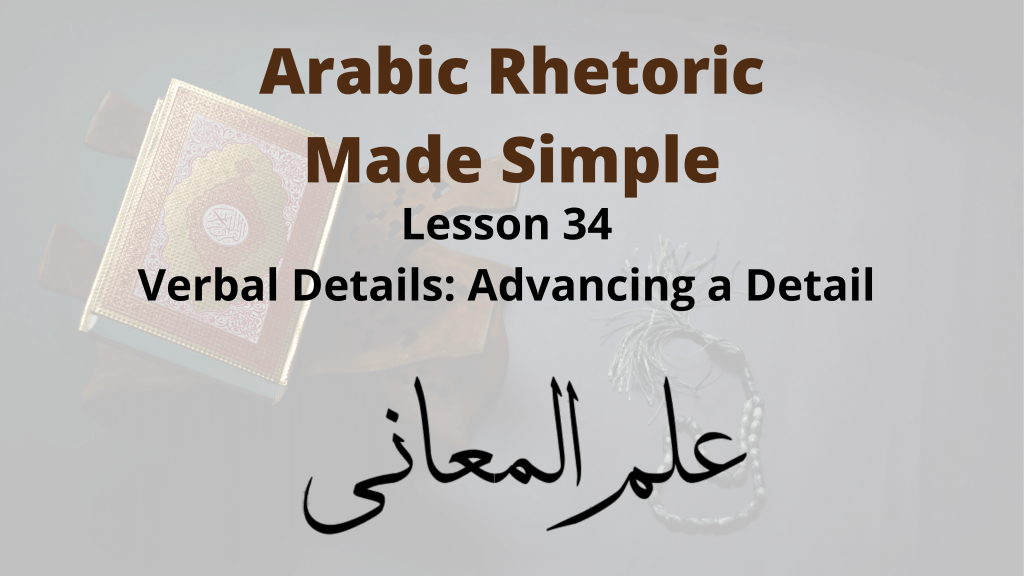In this lesson on Balagha, we are going to learn about bringing a verbal detail before the verb.

Restriction
The first and primary reason you do this is to restrict the verb within the detail.
For example, in Surah Fatiha we have:

Notice that the natural form of this sentence is actually نَعْبُدُكَ وَ نَسْتَعِينُكَ (We worship you and we seek help from You). But the objects in the sentences have been brought before their verbs. Therefore, the action of our worship and the action of our seeking help will be restricted to You”, meaning Allah. So now the translation is “It is You alone we worship and it is You alone from whom we seek assistance”.
In this example, we moved an object of the verb out in front of the verb. But it didn’t have to be an object. It could have been an adverb, a prepositional phrase, a haal or anything along those lines. The verb’s meaning would have become restricted to that detail.
For example: “It is You alone we worship”. “It was solely for discipline that I hit him”. “It is only on Fridays that I take the day off”, and so on.
Also, as with most of the lessons we are doing on verbs, the word doesn’t have to be an actual verb. It can be a verb-like entity such as an ismul fail, or a masdar and so on.
Just be careful with verb-like entities because not all of them allow details to come before them.
Correction
Another reason for moving a verbal detail in front of the verb is because your listener has an incorrect assumption about that detail.
For example: Let’s say I hit Zaid, but you think I hit Amr. So you got the verb right, and you got the subject right, but you got one of the details wrong. Namely the object in this case. So I am going to bring the object first in this sentence in order to refute your assumption, and I am going to say زيدًا ضربْتُهُ (It was Zaid that I hit).
A negative example would be:

Notice here that the restriction applies before the negation. If it was the other way round with the negation applying before the restriction then the translation would be: Zaid was the only one I didn’t hit.
Other Reasons
Finally, there are some miscellaneous reasons for bringing the details first because:
- of its importance, like bismillah
- you derive pleasure from it, like a lover’s name
- you derive barakah from it, like the name of Allah or His Messenger (peace be upon him)
- to maintain rhythm and rhyme, and things along those lines.
An example of bringing a detail before the verb to maintain rhyme is found in the following verse, where Allah says:

Here the object الْجَحِيم and the prepositional phrase في سِلْسِلَةٍ have been brought before their respective command verbs in order to maintain the rhyme of these verses.
- Proceed to next lesson: Verbal Details: Rearrangement of Words
- Return to index page: Intro to Ilm Ul-Ma’ani
- Start free lessons: Sign Up for Free Mini-class